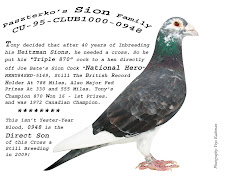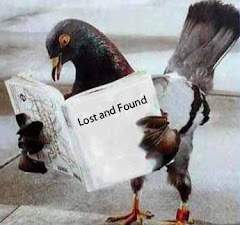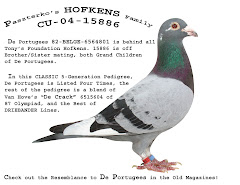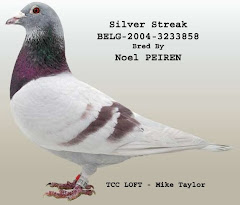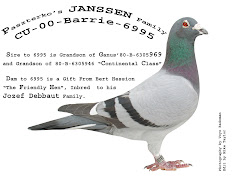by Dr Colin Walker
The Flying Vet's Pigeon Health & Management
Breeding is one of the times of year when supplementation with vitamins and [pink] minerals can give definite benefits. Feeding youngsters places a big nutritional drain on the stock birds and, when dietary levels are marginal, deficiency can develop, leading to disease problems. Most commonly during breeding, this involves the mineral calcium. No matter how much shell grit the birds eat once paired, they cannot assimilate sufficient to compensate for the amount lost in pigeon milk production and in the hens' egg shell formation. The difference is made up from calcium stored in the skeleton before pairing. This is why it is so important that birds have access to grit for the entire year. The amount that can be mobilized from skeletal stores is self-limiting, and when this threshold is passed, a number of problems appear. Calcium is necessary for normal nerve and muscle activity, and so the birds may appear reluctant to walk, floppy, and weak or just quiet. The oviduct is a muscle and should act as a muscular tube pushing the egg down. With a fall in calcium levels, it loses this ability, leading to egg binding. Similarly, if there is insufficient calcium to supply the shell gland within the oviduct wall, rough or soft-shelled eggs may be produced. The quality of crop milk may deteriorate with reduced levels of calcium, leading to soft bones in the youngsters. This is often best assessed where the beak attaches to the head.
Zsolt Talaber
Vets' Tips for Fanciers, adds
A lot of calcium is necessary for the development of eggshells and this macro element is necessary for muscle activity, too. The musculature of the oviduct needs calcium to push the egg down. Calcium deficiency causes abnormal eggshells and/or weakness of the oviduct; the outcome is egg retention.
If egg retention is frequent among your pigeons, your flock management is incorrect - the diet is probably wrong.







